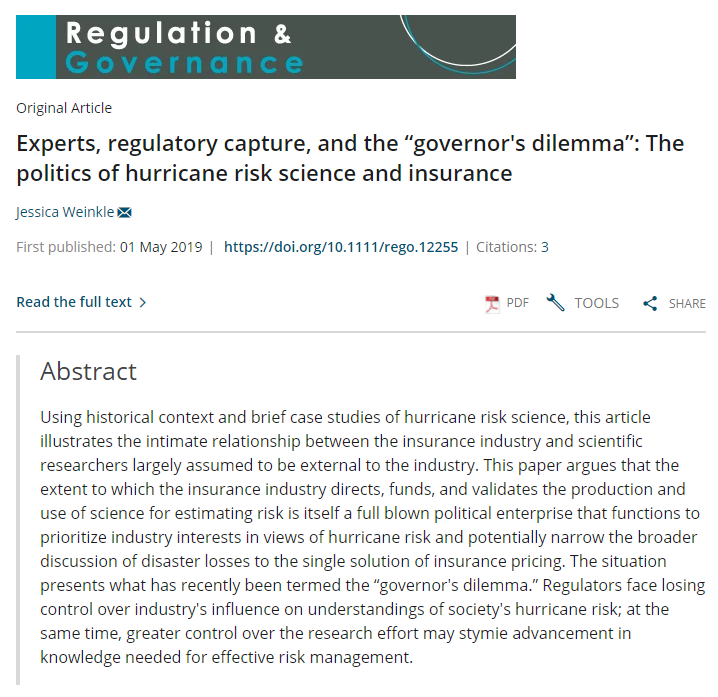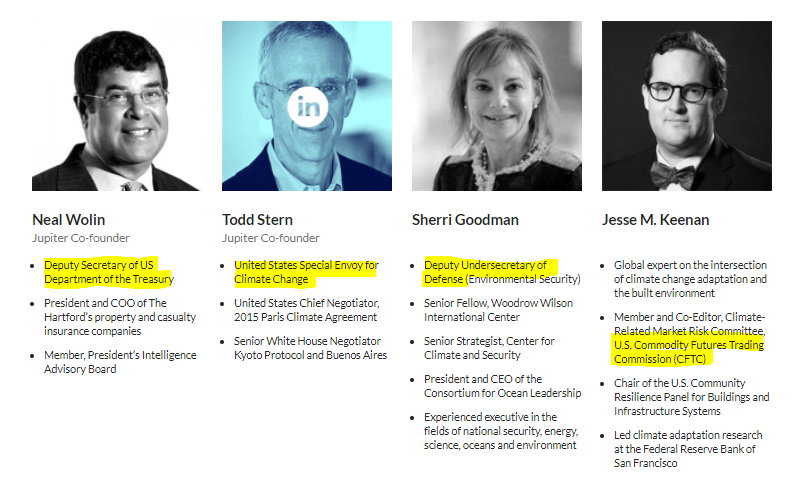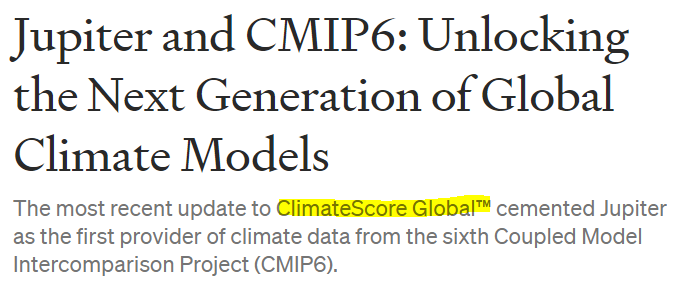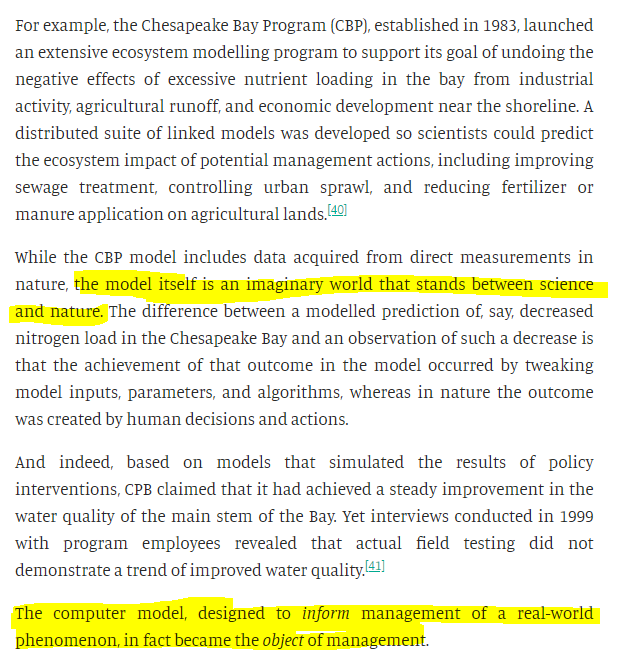
Biden Has Elevated the Job of Science Adviser.
Is That What Science Needs?
Excellent stage setter for Lander hearing today by @WilliamJBroad
nytimes.com/2021/04/29/sci…
Is That What Science Needs?
Excellent stage setter for Lander hearing today by @WilliamJBroad
nytimes.com/2021/04/29/sci…
You can watch the Lander OTSP confirmation hearing here in about 1 hour: commerce.senate.gov/2021/4/nominat…
Here are five policy questions that I recommended be put to Lander at the hearing:
rogerpielkejr.substack.com/p/five-questio…
rogerpielkejr.substack.com/p/five-questio…
If you'd like a bit of a deeper dive on the position of science advisor to the US president, I recommend this:
Pielke, R., & Klein, R. 2009. The rise and fall of the science advisor to the president of the United States. Minerva, 47:7-29.
sciencepolicy.colorado.edu/admin/publicat…
Pielke, R., & Klein, R. 2009. The rise and fall of the science advisor to the president of the United States. Minerva, 47:7-29.
sciencepolicy.colorado.edu/admin/publicat…
Here is Lander's opening statement
In it he characterizes his portfolio at OSTP in terms of 4 of 5 of Biden's "big questions" -- left out is what the country can do for S&T
commerce.senate.gov/services/files…
In it he characterizes his portfolio at OSTP in terms of 4 of 5 of Biden's "big questions" -- left out is what the country can do for S&T
commerce.senate.gov/services/files…

That members of Congress of both parties (not just in this hearing) routinely stumble over saying "Office of Science and Technology Policy" tells us something about how often they use the phrase
Senators Duckworth (D), Wicker (R), Warren (D), Markey (D) w/ opening statements
Interesting dynamics
TD raises some concerns
RW expresses no concerns
EW addresses concerns
EM personalizes him
Nomination looks to sail through on a bipartisan basis
OSTP still a minor player
Interesting dynamics
TD raises some concerns
RW expresses no concerns
EW addresses concerns
EM personalizes him
Nomination looks to sail through on a bipartisan basis
OSTP still a minor player
Hickenlooper (D) with a question about scientific integrity of the US National Climate Assessment
Lander answers with importance of dissent
Background: rogerpielkejr.substack.com/p/fixing-the-u…
Lander answers with importance of dissent
Background: rogerpielkejr.substack.com/p/fixing-the-u…
Lander offers a surprising goal
Within 100 days of a declared pandemic we should have enough does of a tested and approved vaccine in sufficient quantities for everyone
"This should be our last pandemic"
Within 100 days of a declared pandemic we should have enough does of a tested and approved vaccine in sufficient quantities for everyone
"This should be our last pandemic"
Lander not well prepped for a question on cybersecurity
Sen Blumenthal asks Lander about Walter Isaacson's new book, The Code Breaker
Lander comes in for some criticism in the book, but Isaacson remains a fan
blogs.sciencemag.org/editors-blog/2…
Lander comes in for some criticism in the book, but Isaacson remains a fan
blogs.sciencemag.org/editors-blog/2…

Sen Blunt with an ARPA-H question, how does it differ from NIH?
Lander replies (again) by invoking the valley-of-death between basic research and commercial development
But NIH doesn't (in principle) do "basic research"
Lander replies (again) by invoking the valley-of-death between basic research and commercial development
But NIH doesn't (in principle) do "basic research"
Lander comes across as brilliant and passionate in his area of expertise
There is a noticeable drop off in his knowledge of other areas of S&T policy
There is a noticeable drop off in his knowledge of other areas of S&T policy
Sen Luján asks what Lander can do to ensure that science is not just in the room (member of cabinet) but considered in decisions
Lander filibusters
It appears that Lander staying away from concrete policy discussions is a strategy, focusing on generalities instead
Lander filibusters
It appears that Lander staying away from concrete policy discussions is a strategy, focusing on generalities instead
More generalities
Sen Klobuchar asks Lander about climate change
"focus on innovation" to make energy generating technologies more efficient to close cost gaps
cybersecurity
"don't have enough people trained in it"
"make less hackable"
broadband
"such an important issue"
Sen Klobuchar asks Lander about climate change
"focus on innovation" to make energy generating technologies more efficient to close cost gaps
cybersecurity
"don't have enough people trained in it"
"make less hackable"
broadband
"such an important issue"
Democrats having a hard time finding someone to chair the Lander confirmation hearing is an apt metaphor for how OSTP is viewed in the federal policy ecosystem
Nice to have but not really an important player
Nice to have but not really an important player
Sen Rosen asks about science integrity
A great chance to tout Biden agenda on this
But Lander does not mention either the recent Biden memo or Congressional science integrity legislation
Seems clear that responding with happy generalities is the strategy here
And it'll work
A great chance to tout Biden agenda on this
But Lander does not mention either the recent Biden memo or Congressional science integrity legislation
Seems clear that responding with happy generalities is the strategy here
And it'll work
Sen Sullivan fishes for praise of Trump on vaccines
Lander cleverly steers conversation to cold Alaskan winters and research centers
Very smooth
Lander cleverly steers conversation to cold Alaskan winters and research centers
Very smooth
Senator Lunnis asks about rare earth minerals
Lander's tell that he doesn't know much about the topic is "such an important issue"
Says that 100% of Gallium is imported from China
According to USGS 2021 this is incorrect
pubs.usgs.gov/periodicals/mc…
Lander's tell that he doesn't know much about the topic is "such an important issue"
Says that 100% of Gallium is imported from China
According to USGS 2021 this is incorrect
pubs.usgs.gov/periodicals/mc…

Lander is prepared with a written statement expressing his regret for his treatment of colleagues over CRISPR
Senator Lee asks about research ethics regulations
Lander is on record on some of Lee's questions, such as heritable genome editing:
nature.com/articles/d4158…
Lander is on record on some of Lee's questions, such as heritable genome editing:
nature.com/articles/d4158…
Senator Lee asks instead of increasing R&D spending by $100B, why not $250B? Why not $1T?
University lobbyists' ears just perked up 😉
University lobbyists' ears just perked up 😉
Short, uneventful, substance-free hearing
I predict Lander will sail thru, unanimously in committee and overwhelmingly in the Senate
What Biden's OSTP will do remains a mystery, but I'd venture history provides a good guide
That's all folks!
/END
I predict Lander will sail thru, unanimously in committee and overwhelmingly in the Senate
What Biden's OSTP will do remains a mystery, but I'd venture history provides a good guide
That's all folks!
/END
• • •
Missing some Tweet in this thread? You can try to
force a refresh


















